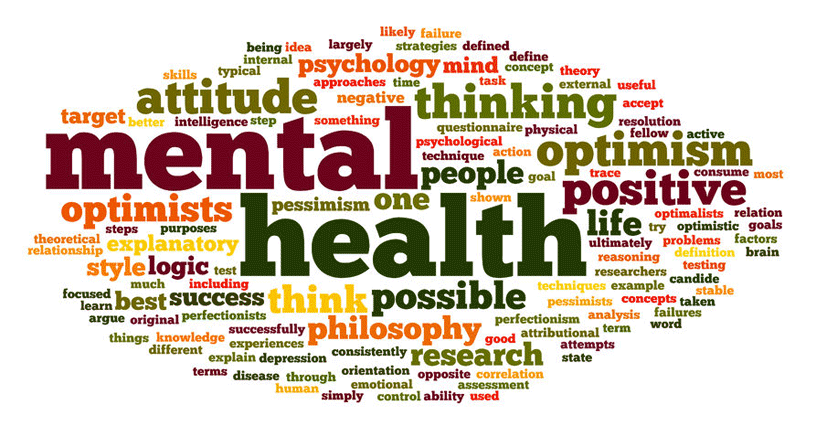Comprehensive Inpatient Mental Health And Wellness Solutions for Effective Therapy
Inpatient mental wellness solutions stand for a crucial element of the health care system, supplying a structured and extensive setting for people experiencing severe mental distress. Discovering the subtleties of this continuum reveals considerable ramifications for both specific healing and more comprehensive psychological health and wellness results.
Understanding Inpatient Mental Health And Wellness Solutions
Inpatient psychological health services offer essential assistance for individuals experiencing extreme emotional distress that can not be taken care of properly in an outpatient setup. These solutions are developed to use an intensive degree of care in a structured environment, commonly within a medical facility or specialized facility. Clients admitted to inpatient programs commonly display severe signs and symptoms, such as self-destructive ideation, severe depression, or psychosis, necessitating round-the-clock monitoring and intervention.
The admission procedure normally entails a detailed assessment by psychological health professionals, that review the person's mindset, history, and prompt demands. When confessed, individuals engage in a selection of healing methods customized to their specific needs, consisting of drug management, individual therapy, and team sessions. This holistic method intends to maintain the patient's condition, promote security, and foster coping abilities.
Inpatient mental health services not only address instant wellness worries yet additionally serve as a bridge to recurring treatment. By giving a regulated setting, these services help with the growth of treatment plans that can be continued in outpatient settings, hence ensuring a continuum of care and enhancing long-term results for people with intricate mental wellness needs.
Key Parts of Effective Therapy
Effective therapy in inpatient psychological health solutions makes up several crucial parts that cultivate recuperation and stablizing. First and primary, a comprehensive analysis is vital to determine the person's specific requirements and difficulties. This evaluation educates the advancement of a customized treatment plan, which functions as a roadmap for intervention.
Another essential component is the multidisciplinary team technique. Cooperation amongst psychoanalysts, psychologists, registered nurses, and social workers ensures that various point of views add to the client's care, improving the performance of treatment. Evidence-based therapeutic techniques, such as cognitive-behavioral treatment (CBT) and dialectical behavior modification (DBT), are also important, offering organized techniques that deal with maladaptive thought patterns and behavior problems.

Finally, an emphasis on aftercare planning is critical to make certain a seamless transition to outpatient services, lessening the risk of relapse and promoting long-term wellness. These cumulative elements develop a reliable therapy framework within inpatient psychological health services.
Benefits of Comprehensive Treatment

Thorough care in inpatient psychological health and wellness services uses countless advantages that significantly enhance client outcomes. One of the main advantages is the alternative approach to therapy, dealing with not only the emotional signs and symptoms but additionally the physical, social, and emotional requirements of patients. This extensive evaluation enables customized interventions that promote overall health.
One more benefit is the integration of multidisciplinary groups, which cultivates cooperation amongst healthcare professionals. This collaborative setting ensures that individuals receive collaborated treatment, minimizing the threat of fragmented therapy and boosting communication among caretakers. Moreover, detailed care helps with connection of solutions, enabling smooth shifts from inpatient to outpatient settings, which is critical for long-lasting recuperation.

Last but not least, the organized setting of extensive inpatient care supplies a risk-free space for clients to participate in restorative tasks, helping them create dealing techniques and strength. Jointly, these advantages add to a lot more efficient therapy and boosted lifestyle for people experiencing psychological wellness dilemmas.
Evidence-Based Therapeutic Strategies
In the world of mental health and wellness therapy, evidence-based restorative approaches play a crucial role in making sure that clients receive effective and clinically supported interventions. These approaches integrate the most effective available study with professional expertise and individual values, cultivating a customized treatment experience that addresses specific requirements.
Cognitive Behavior Therapy (CBT) is just one of the most widely acknowledged evidence-based methods, focusing on recognizing and changing unfavorable idea patterns and actions. This structured technique has actually shown efficiency in treating problems such as clinical depression, ptsd, and anxiety. Dialectical Actions Treatment (DBT) is particularly reliable for individuals with borderline individuality problem, emphasizing the advancement of psychological regulation and social efficiency abilities.
Furthermore, drug administration is often an indispensable component of evidence-based treatment, as psychotropic medicines can reduce symptoms and enhance total performance. Collective treatment models, which include multidisciplinary groups, additionally enhance the efficiency of inpatient services by making certain extensive examinations and continual surveillance.
Inevitably, the combination of evidence-based restorative techniques not just promotes favorable professional outcomes yet additionally equips clients, fostering a feeling of firm and strength in their psychological health trips.
Transitioning to Outpatient Support
The shift from inpatient mental health and wellness services to outpatient support notes an essential phase in a person's recovery journey. This duration requires cautious planning and control to make top article sure connection of treatment and to mitigate the threats of regression or dilemma. Reliable discharge preparation need to start early in the inpatient keep, including a multidisciplinary group that includes psychoanalysts, psychologists, nurses, and social workers.
Crucial element of a successful change include the advancement of a thorough aftercare plan tailored to the person's details needs. This strategy must detail follow-up appointments, drug management, and therapeutic interventions, along with determine neighborhood sources and support system that can assist in continuous recovery.
Furthermore, client and family education and learning is vital throughout this phase. Comprehending the indicators of possible problems and the value of adhering to treatment can equip individuals and their support group.
Normal follow-up and reassessment of the outpatient plan are important to deal with advancing challenges. By promoting a joint relationship in between inpatient and outpatient service providers, the possibility of sustained recovery rises, inevitably enhancing the person's lifestyle and decreasing the risk of readmission.

Final Thought
In recap, comprehensive inpatient mental health solutions use a vital structure for resolving serious psychological distress go right here with a multidisciplinary technique. By integrating evidence-based therapies, cultivating an organized atmosphere, and advertising household involvement, these solutions improve therapy performance. The focus on stability and the advancement of dealing abilities not only aids in immediate recuperation yet additionally promotes a smoother change to outpatient care. Inevitably, such thorough treatment is vital for long-term psychological health and wellness and wellness.
The admission process generally includes a detailed evaluation by psychological wellness experts, who review the individual's mental state, history, and instant needs.Reliable therapy in inpatient mental health services makes up numerous essential elements that promote recuperation and stablizing.Thorough care in inpatient mental health services provides countless benefits that significantly enhance client end results.The shift from inpatient mental health services to outpatient assistance notes a critical stage in a person's healing trip.In summary, extensive inpatient psychological health services supply an essential framework for dealing with severe psychological distress with a multidisciplinary strategy.